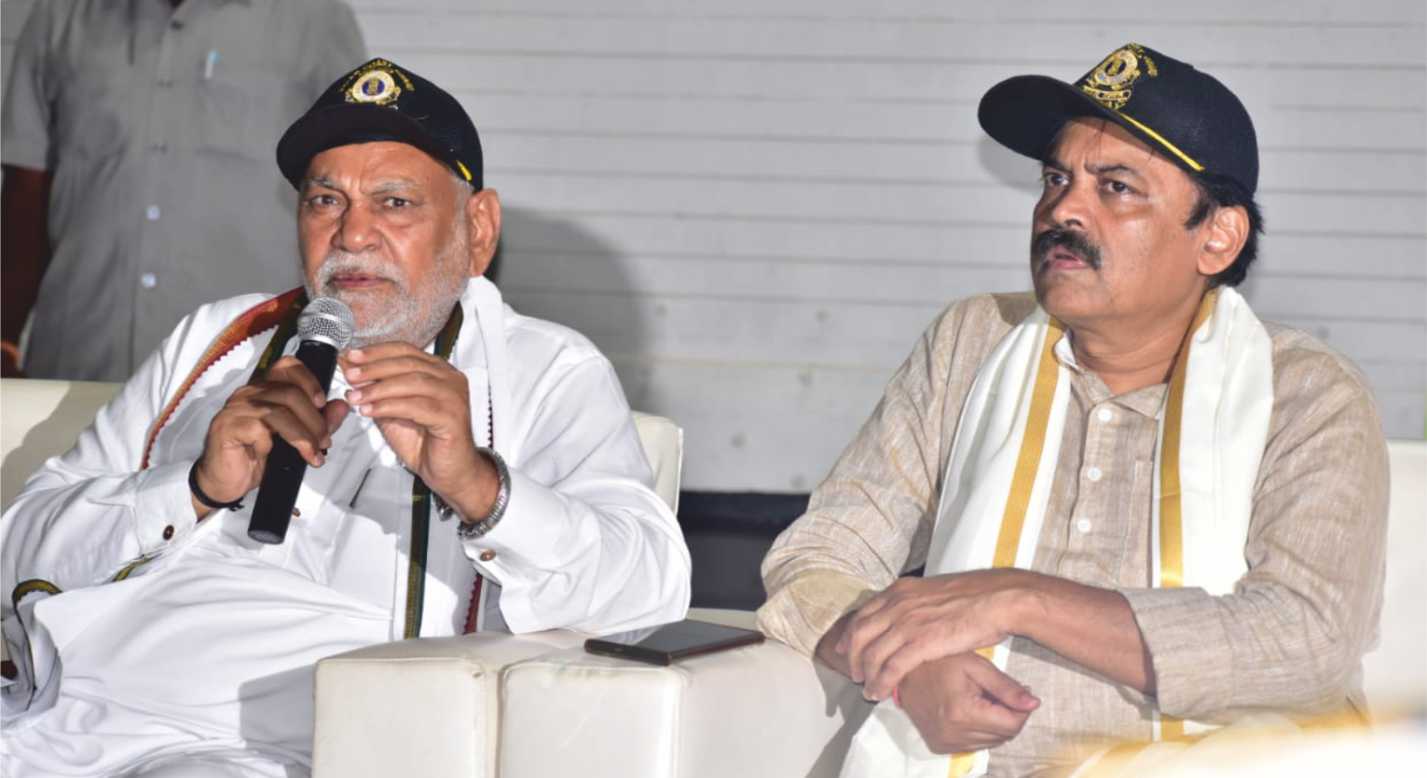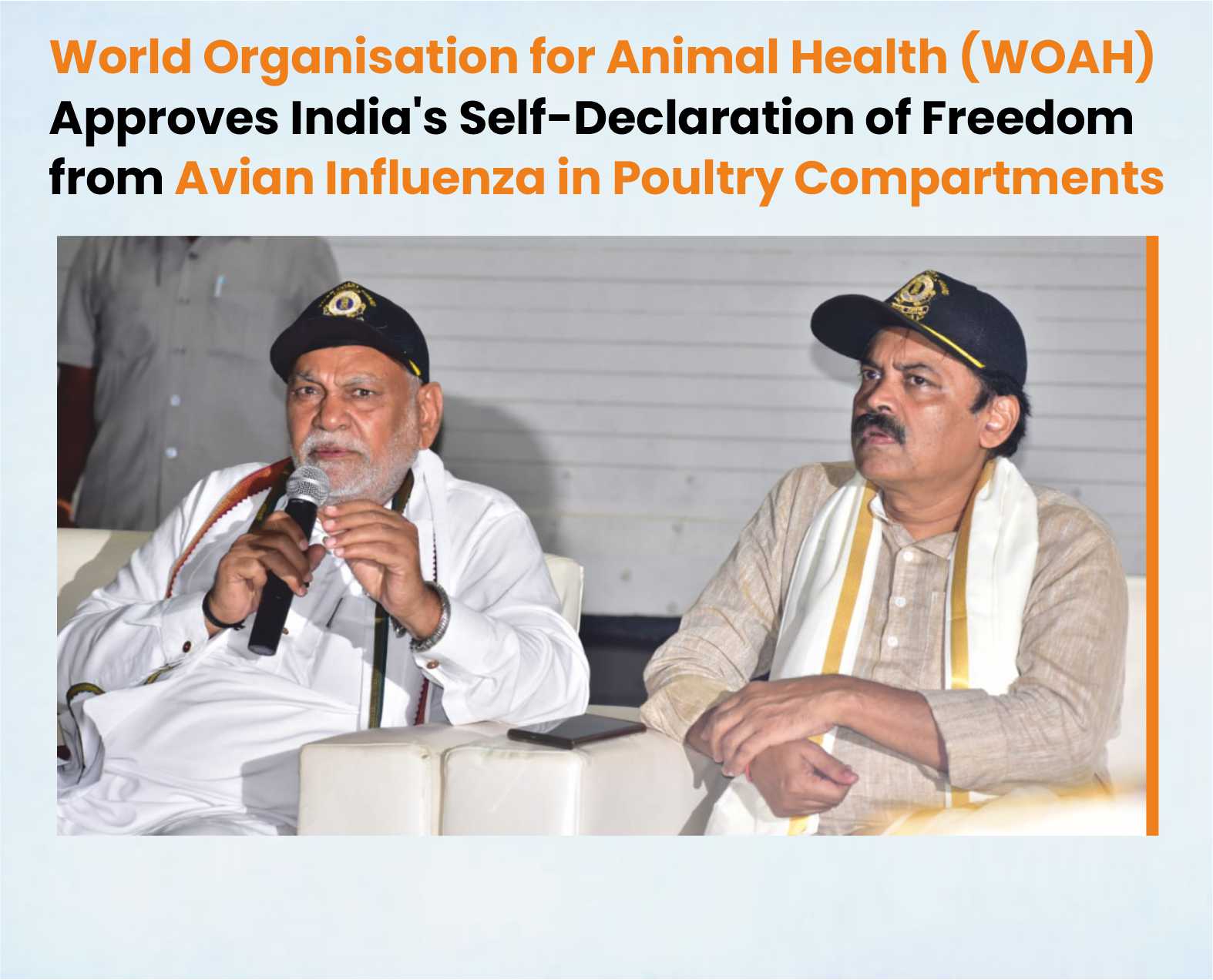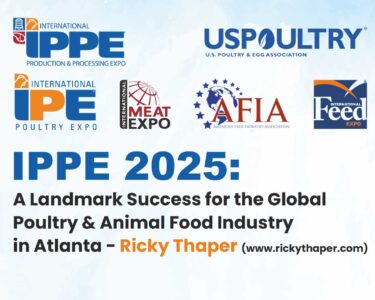World Organisation for Animal Health (WOAH) Approves India’s Self-Declaration of Freedom from Avian Influenza in Poultry Compartments

Shri Parshottam Rupala Ji, Hon’ble Union Cabinet Minister, Department of Animal Husbandry, Fisheries & Dairying, Government of India addressed the Indian Poultry Industry during World Egg Day 2023.
In a significant milestone for India’s poultry industry, the World Organisation for Animal Health (WOAH) has granted its approval to India’s self-declaration of freedom from Highly Pathogenic Avian Influenza (HPAI) in specific poultry compartments. This remarkable achievement reflects India’s unwavering commitment to upholding stringent standards of animal health and biosecurity.
Highly Pathogenic Avian Influenza (HPAI), commonly known as Bird Flu, was first detected in India in the state of Maharashtra in February 2006. Subsequently, the country has witnessed annual outbreaks of HPAI in various regions, leading to substantial economic losses. The disease has been reported in 24 states and union territories, resulting in the culling of over 9 million birds as part of efforts to control its spread.
In light of this achievement, Shri Parshottam Rupala Ji, Hon’ble Union Cabinet Minister, Department of Animal Husbandry, Fisheries & Dairying, Government of India addressed the Indian Poultry Industry during World Egg Day 2023. He added that India is not only the third-largest producer of eggs, surpassing the remarkable number of 129.60 billion annually but also the fifth-largest producer of poultry, reaching an impressive figure of 4.47 million tonnes annually. This recognition of India’s bird flu-free zones has far-reaching implications for international trade and the poultry sector’s prosperity.
India’s approach to combating HPAI follows a “detect and cull” policy, as outlined in the National Action Plan for Prevention, Control, and Containment of Avian Influenza (revised – 2021). This comprehensive response involves the humane destruction of infected and exposed animals, eggs, feed, litter, and other contaminated materials. Additionally, measures such as restrictions on the movement of poultry and poultry products, disinfection and clean-up of infected premises, and the implementation of a Post-Operative Surveillance Plan (POSP) have been put in place. It is important to note that vaccination against HPAI is not permitted in India.
Compartmentalization: A Key Control Measure
Despite these challenges, India has proactively embraced the concept of poultry compartmentalization to mitigate the risks associated with HPAI. Compartmentalization is a vital tool that enhances animal health, reduces the risk of disease outbreaks within and outside the compartment, and facilitates the trade of poultry and poultry-related products.
Approval of Self-Declaration by WOAH
The Department of Animal Husbandry & Dairying, Government of India, submitted a self-declaration asserting freedom from High Pathogenicity Avian Influenza in 26 poultry compartments to the World Organisation for Animal Health (WOAH). On October 13, 2023, WOAH officially approved this self-declaration, coinciding with World Egg Day. The declaration is now accessible to the public on the WOAH website.
These poultry compartments are located in four states of India, namely Maharashtra, Tamil Nadu, Uttar Pradesh, and Chhattisgarh. WOAH’s recognition of this declaration underscores India’s dedication to international biosecurity standards and is poised to significantly enhance the export potential of Indian poultry and poultry products, including meat and eggs. India, being the third-largest global producer of eggs (129.60 billion) and the fifth-largest producer of poultry meat (4.47 million tonnes), is well-positioned to capitalize on this achievement.
During the 2022-23 fiscal year, India exported poultry and poultry products to 64 countries, generating revenue of 134 million USD. The approval of this self-declaration is anticipated to unlock new opportunities for the Indian poultry sector in the global market, making a substantial contribution to the country’s economic growth.






